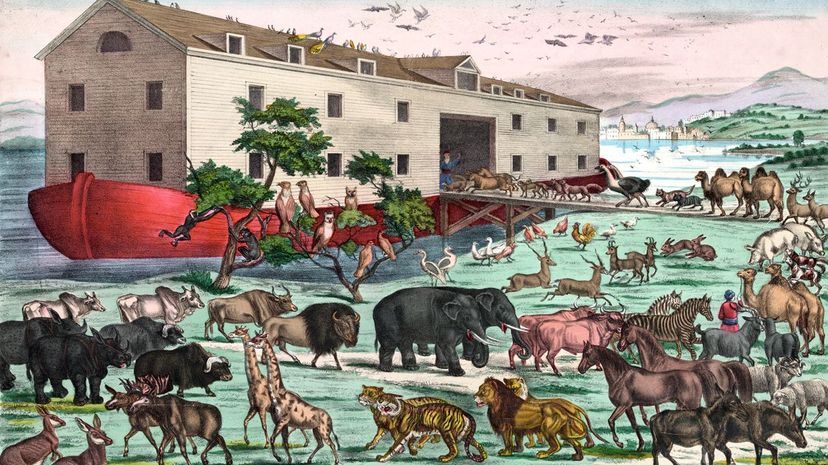
About This Quiz
There's a load of wonderful history inside this super fun and informative Bible challenge. Get both Old and New Testament sides of your brain ready to remember fascinating facts about ancient Christian times.Â
Here are some easy ways to conjure correct answers in order to do well on this trivia test: First, remember all the key players you can from every Bible book. For example, when you think of Genesis, your brain should immediately retrieve Adam and Eve facts, Abraham and Sarah info, Jacob and Esau intel. Mosey on to Exodus, a word that means exit (a major hint!), and stick with lore concerning the children of Israel and Moses. Do you notice how simple this strategy is so far? Next, in your noggin sum up each Bible figure's history in one simple sentence, like "Moses freed the children of Israel" or "Adam and Eve ate the forbidden fruit." With enough of these simple sentences, you should be able to connect Bible historical dots in no time, and your correct answers on this test will be a no-brainer.Â
If you're not so sure about which Bible books are which, think instead about whether a biblical fact comes out of the Old or New Testament. Be careful with this tip, though; there are a few questions that incorporate both Bible hemispheres. But armed with these tips for getting biblical history facts in order, you're ready to wow your friends with a high score, so don't forget to share this knowledge!
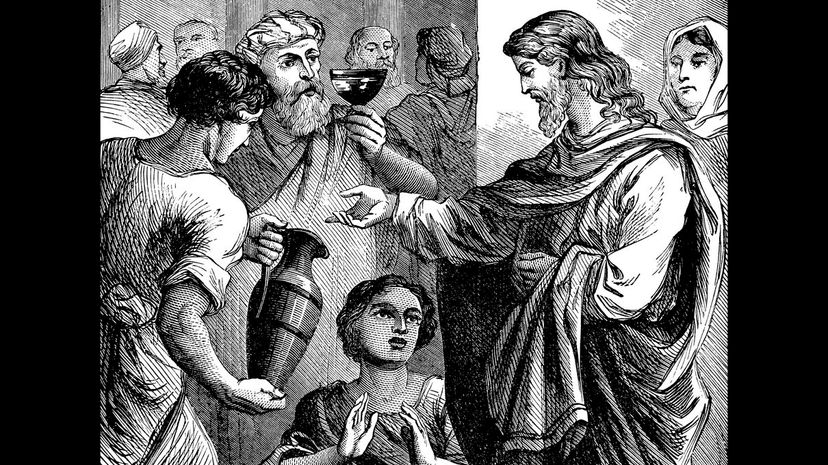
Jesus's mother told her son that wine had run out at the wedding they were attending. In response, according to John 2, Jesus told the wedding servants to fill pots with water and "bear unto the governor of the feast." The resultant wine was better than the first.
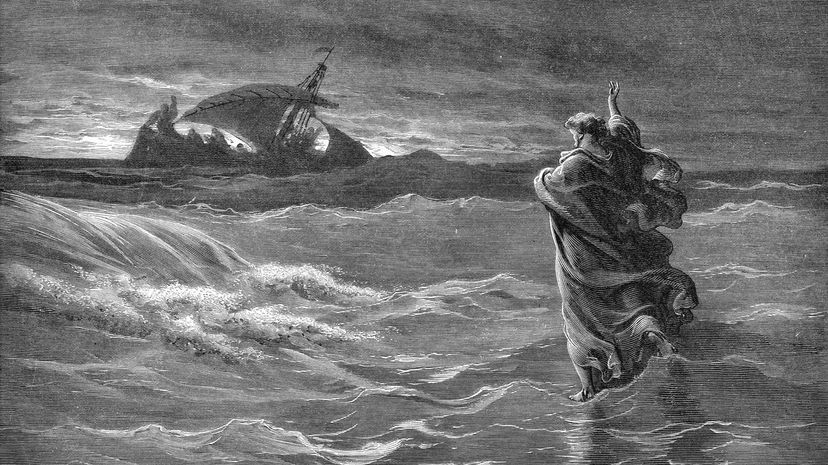
Jesus walks on water in Mark 6 (and in Matthew 14). The chapter tells how Jesus went "walking upon the sea" after he returned from praying in a mountain "about the fourth watch."
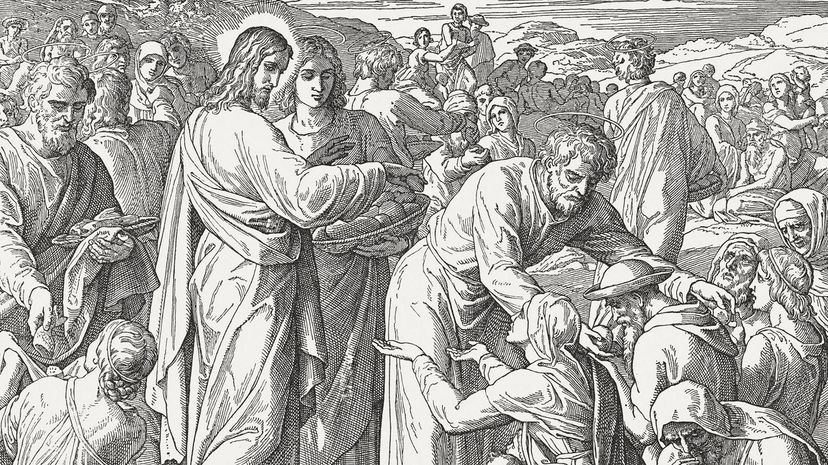
Jesus feeds a multitude of 5,000 people in Luke 9. Jesus had ministered to and healed the people and told his disciples, "Give ye them to eat," but the only food available was five loaves and two fishes, which Jesus increased through blessing. The people ate with "fragments" remaining.
Advertisement
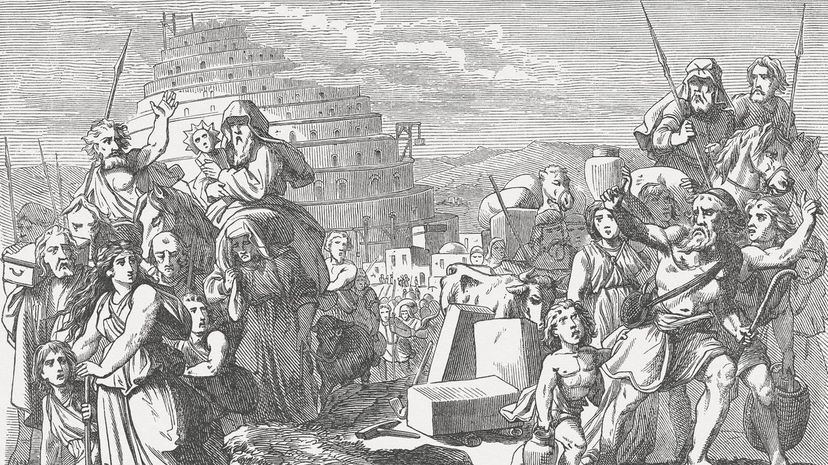
After they had journeyed from the east, the sons of Noah dwelt in "a plain in the land of Shinar." Genesis 11 goes on to communicate that they said one to another, "Go to, let us build us a city and a tower, whose top may reach unto heaven ..."
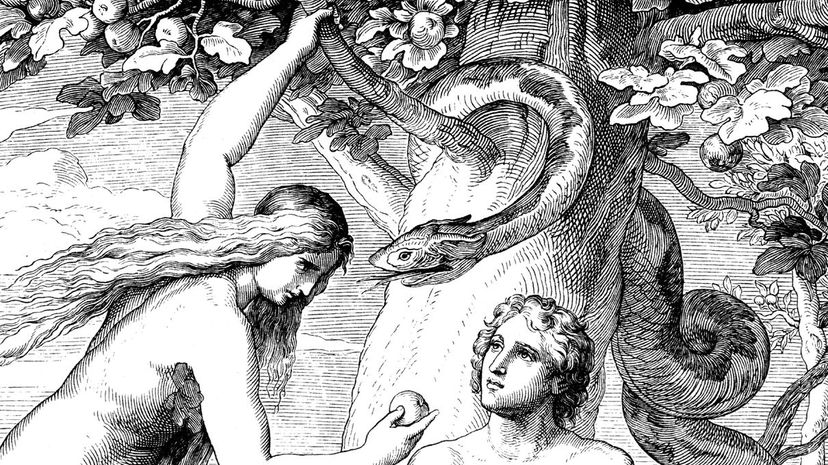
Genesis 3 establishes that "the serpent was more subtle than any beast of the field which the Lord God had made." The cunning creature said to Eve, "Ye shall not surely die" if she and Adam eat "of the fruit of the tree which is in the midst of the garden ..."
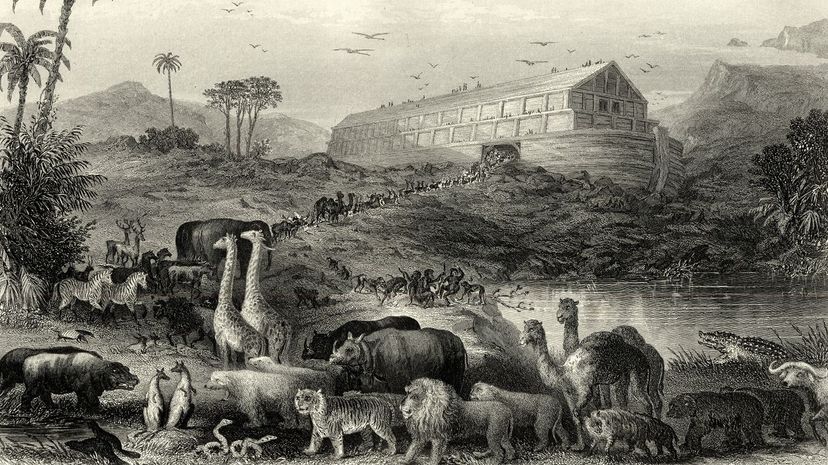
Genesis 7 chronicles God's plans to destroy of the Earth due to the people's wickedness. He commanded that his righteous servant Noah build an ark to protect himself and chosen beasts while God brought rain to the Earth for "forty days and forty nights."
Advertisement
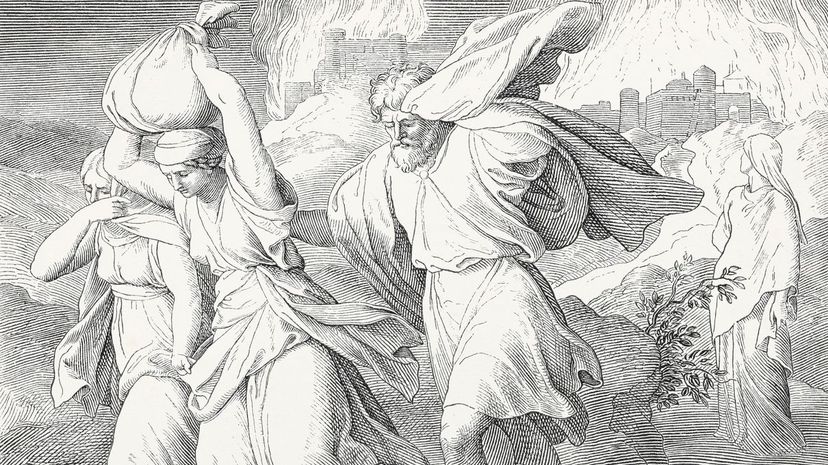
Genesis 18 intimates that Lot's wife looked back at the smoldering cities of Sodom and Gomorrah and was turned into a pillar of salt. God had sent two angels to destroy the cities "because the cry of Sodom and Gomorrah is great, and because their sin is very grievous ..."

Genesis 9 confirms that God promised to set a "bow in the cloud, and it shall be for a token of a covenant" between him and Noah and "every living creature of all flesh ..." A great flood that God had caused remained on the Earth for 150 days before God instituted the covenant.
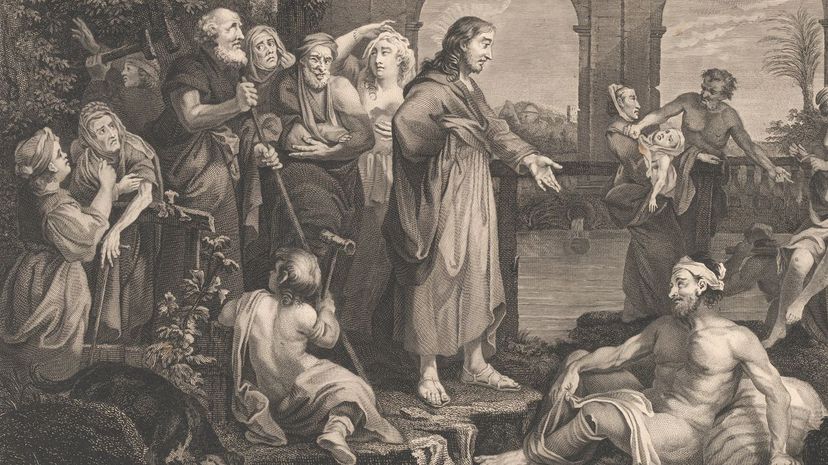
John 5:5 asserts that "a certain man was there," at the pool, who "had an infirmity thirty and eight years." Jews took issue with the fact that Jesus healed the man on a Sabbath day - a forbidden act according to Mosaic law.
Advertisement
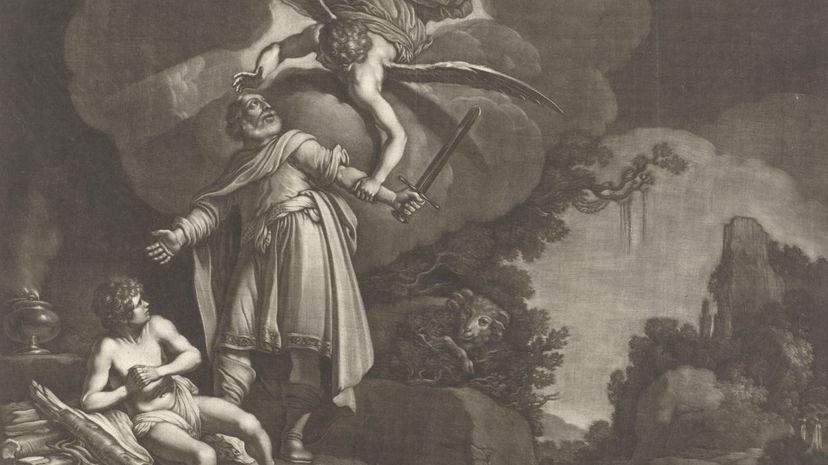
Genesis 22 elucidates that "God did tempt Abraham" when he told him to take his son, "thine only son Isaac, whom thou lovest" and offer the boy as a burnt offering. Abraham readily accepted the task, even though God sent an angel to intervene and save Isaac from sacrifice.
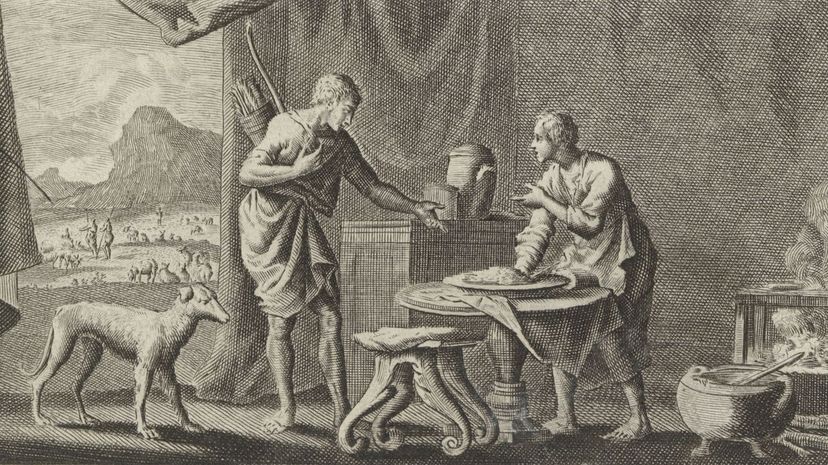
In Genesis 25, Esau tells his brother Jacob, "Feed me, I pray thee, with that same red pottage ..." As the firstborn, Esau was poised for an eternal covenant with God. But regarding the morsel of food, Jacob told Esau, "Sell me this day thy birthright," and Esau did so.
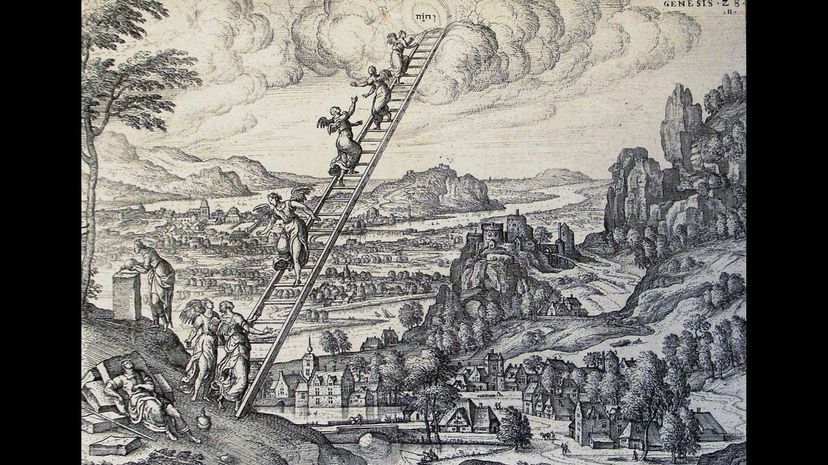
In a dream, Jacob saw "a ladder set up on the earth, and the top of it reached to heaven: and behold the angels of God ascending and descending on it." Genesis 28 also says that Jacob had been en route to Padan-aram to seek a bride when he stopped for rest.
Advertisement
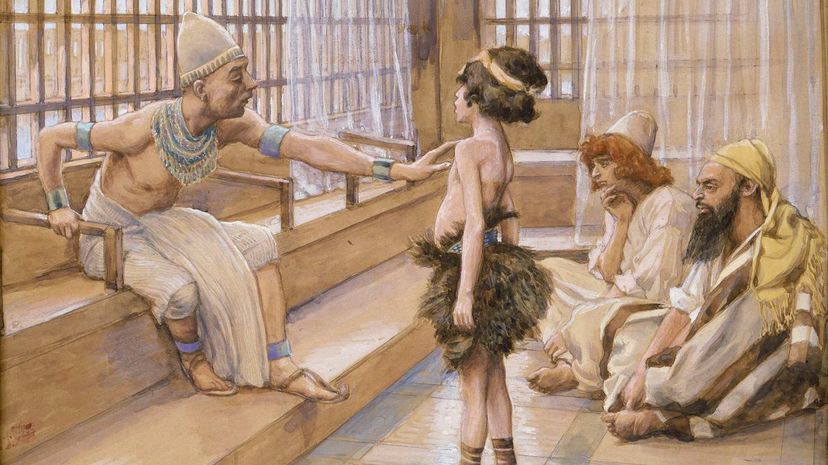
Genesis 39:1 names Joseph's master: "And Joseph was brought down to Egypt; and Potiphar, an officer of Pharaoh ... bought him of the hands of the Ishmeelites ..." So hated was Joseph by his brothers that they sold him to traveling Ishmeelites.
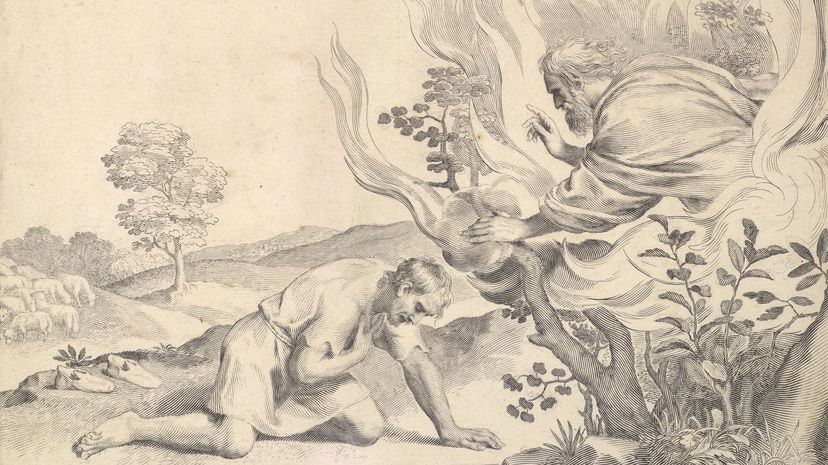
Exodus 3:2-4 explains that, "The angel of the Lord appeared unto him in a flame of fire out of the midst of a bush ..." Moses turned to the "great sight" and "God called unto him out of the midst of the bush, and said Moses, Moses. And he said, Here am I."
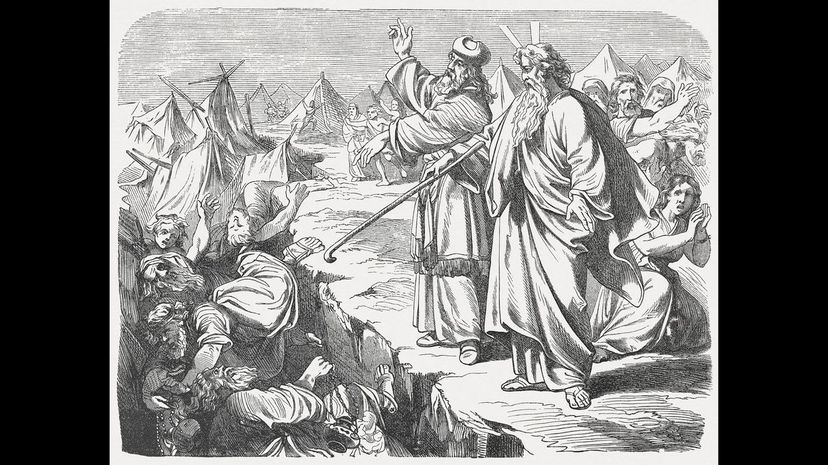
Numbers 16 depicts how, "The earth opened her mouth, and swallowed them up, with all that appertain unto them, and they go down quick into the pit ..." Verse 30 says that, "These men have provoked the Lord."
Advertisement
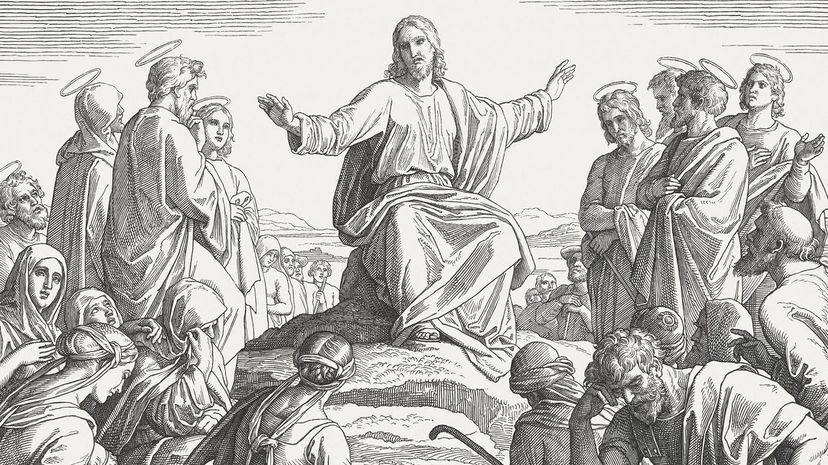
Matthew 5 lists the beatitudes Jesus revealed at his sermon on the mount. "Blessed are the poor in spirit: for theirs is the kingdom of heaven" is one among many blessings. Jesus offered the beatitudes to the multitudes of people who had been following him.
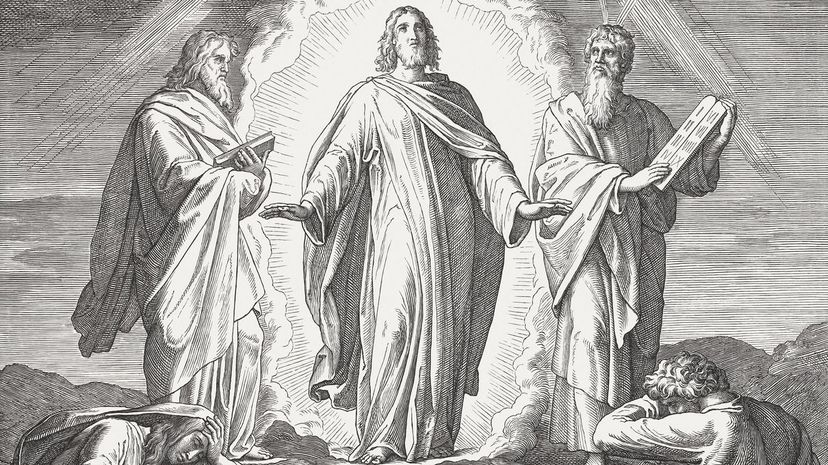
Matthew 17 identifies the Old Testament figures who appeared with Jesus: "And, behold, there appeared unto them Moses and Elijah talking with him." Jesus had brought up disciples James, Peter and John to the highest part of the mountain "and was transfigured before them."
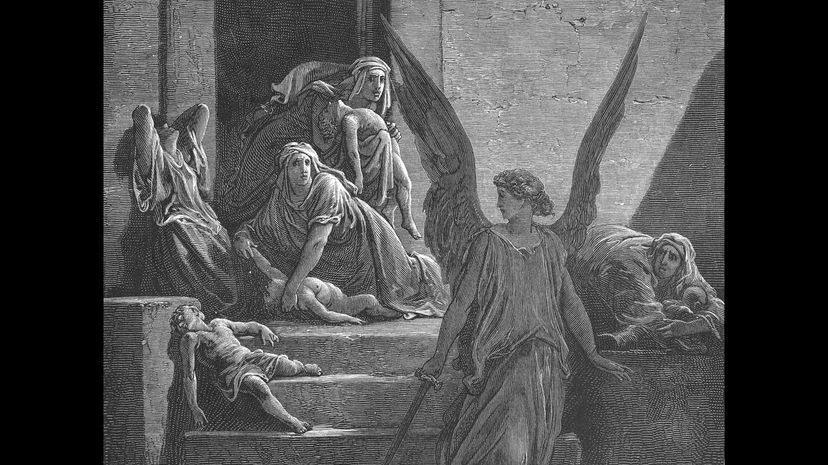
Exodus 12:29 verifies the 10th and final plague that God unleashed upon Egypt for its enslavement of God's children: "And it came to pass, that at midnight the Lord smote all the firstborn in the land of Egypt ..." This tenth plague moved Pharaoh finally to release the children of Israel.
Advertisement
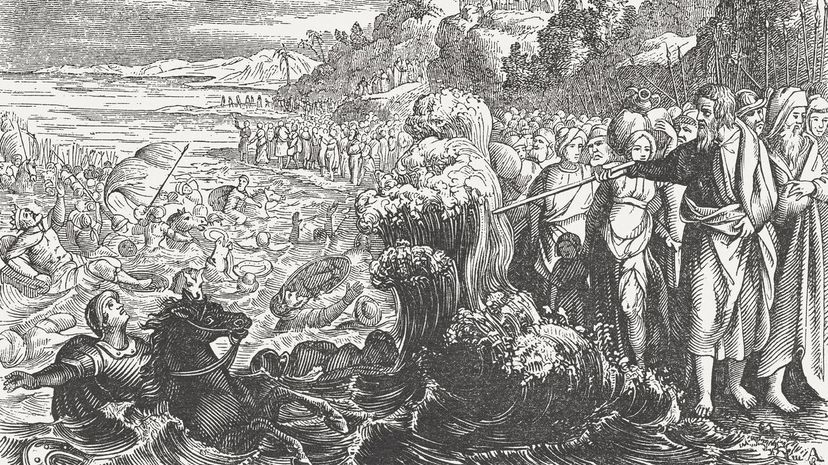
As the children of Israel traversed through the Red Sea, they traveled "dry ground: and the waters were a wall unto them on their right hand, and on their left," as stated in Exodus 14. God had instructed Moses to lift his rod up and over the sea "and the waters were divided."
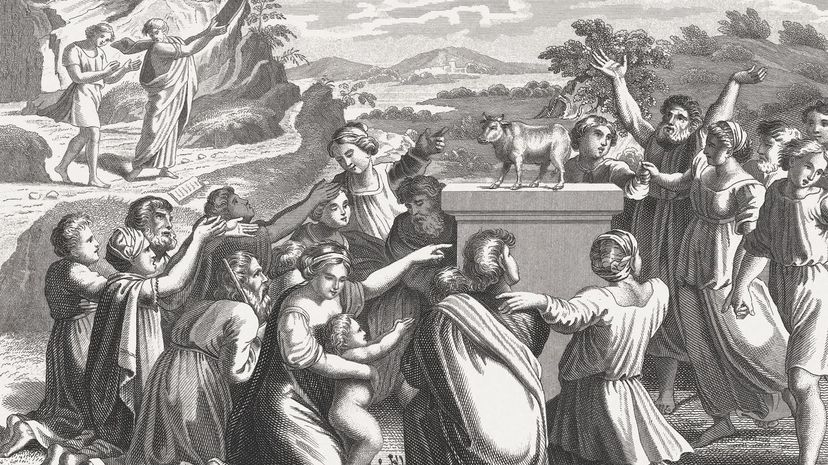
While Moses was up on Mount Sinai "with the Lord forty days and forty nights," the children of Israel, according to Exodus 32, "brake off the golden earrings, which were in their ears, and brought them unto Aaron," Moses's brother. Aaron "made it a molten calf."
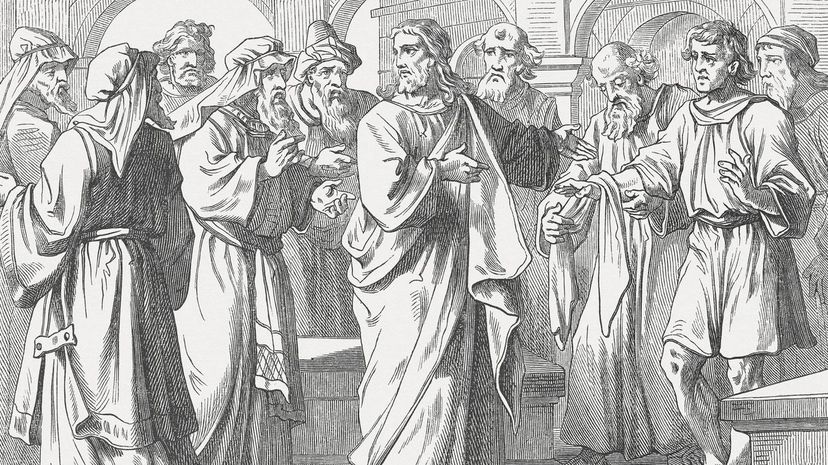
Luke 6 asserts that scribes and Pharisees had been watching to see "whether he would heal on the sabbath day; that they might find an accusation against him." Jesus "knew their thoughts" and did heal the man's withered hand after he taught in a synagogue.
Advertisement
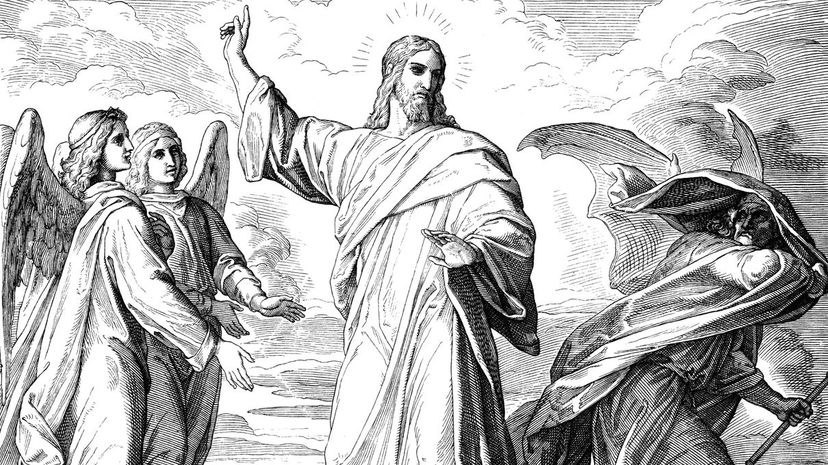
After Satan's third attempt to persuade the son of God, Jesus replies, "Get thee hence, Satan: for it is written, Thou shalt worship the Lord thy God, and him only shalt thou serve." Matthew 4:1 stipulates that the Holy Spirit led Jesus "into the wilderness to be tempted of the devil."

Joshua 10 shows that, "The sun stood still ... until the people had avenged themselves upon their enemies." In their quest to get the land that God had promised them, the children of Israel faced many enemies. God demonstrated power over heaven and Earth to avenge the Israelites in their pursuits.

Luke 8:43 introduces "a woman having an issue of blood twelve years, which had spent all her living upon physicians, neither could be healed of any ..." Though she was among a multitude of people who followed Jesus, she managed to touch "the border of his garment" and was "made whole."
Advertisement
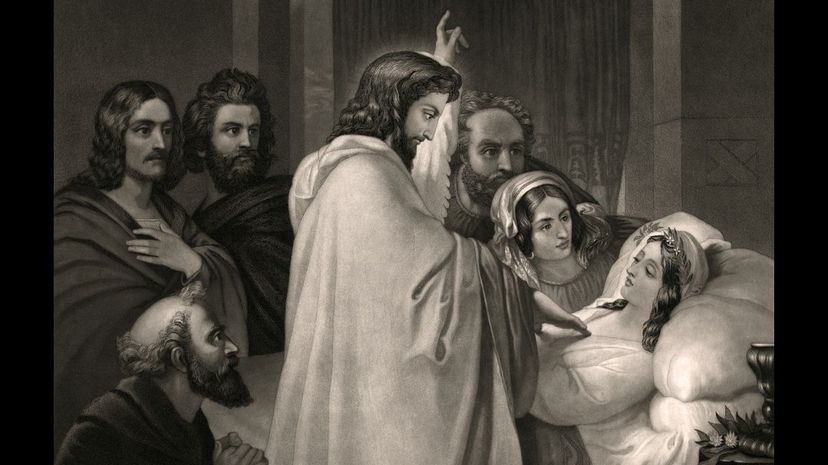
Jesus utters the words "Talitha cumi; which is, being interpreted, Damsel, I say unto thee, arise," and Jairus's daughter, who was feared dead, "arose, and walked." Mark 5 describes Jairus as "one of the rulers of the synagogue."
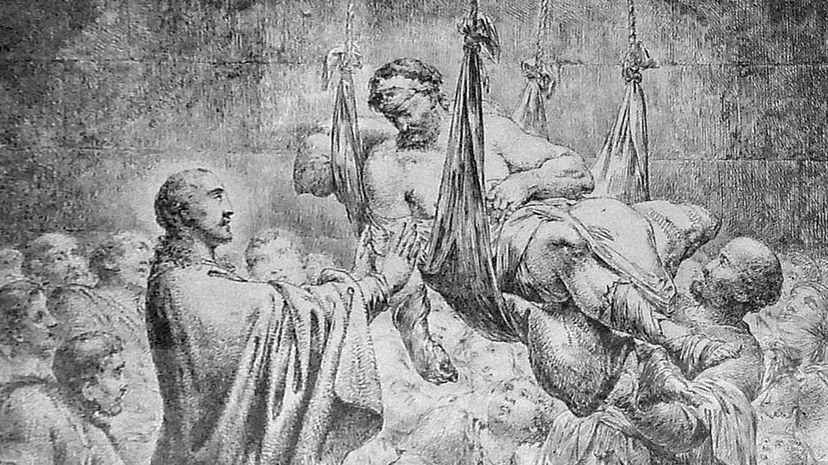
A group of men carrying the man on a bed "could not find by what way they might bring him in because of the multitude ..." In order to bring him "into the midst before Jesus," they lowered him "down through the tiling with his couch."
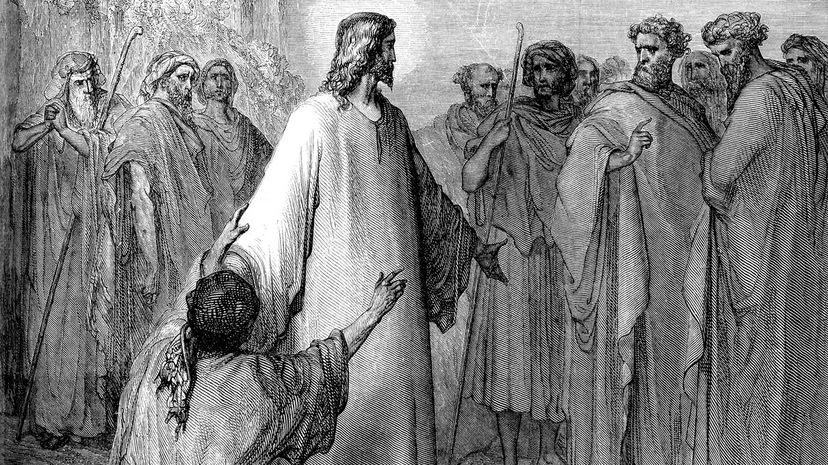
Luke 8:35 locates "the man, out of whom the devils departed, sitting at the feet of Jesus, clothed, and in his right mind ..." Prior to this, Jesus and his disciples had come into Gadarenes to find the nude man demon-possessed and living among the tombs.
Advertisement

Luke 17 specifies Jesus's exact words: "Go shew yourselves unto the priests." When the 10 lepers did so, "They were cleansed." The afflicted men were healed after having called out to Jesus, saying, "Master, have mercy on us."
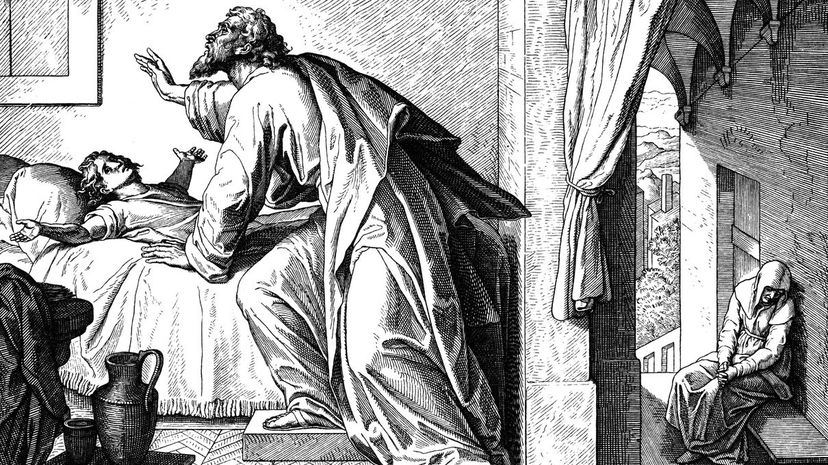
First Kings 17 confirms that the prophet "stretched himself upon the child three times, and cried unto the Lord ..." Elijah asked that the "child's soul come into him again." God heard the prophet's voice, "and the soul of the child came into him again, and he revived."
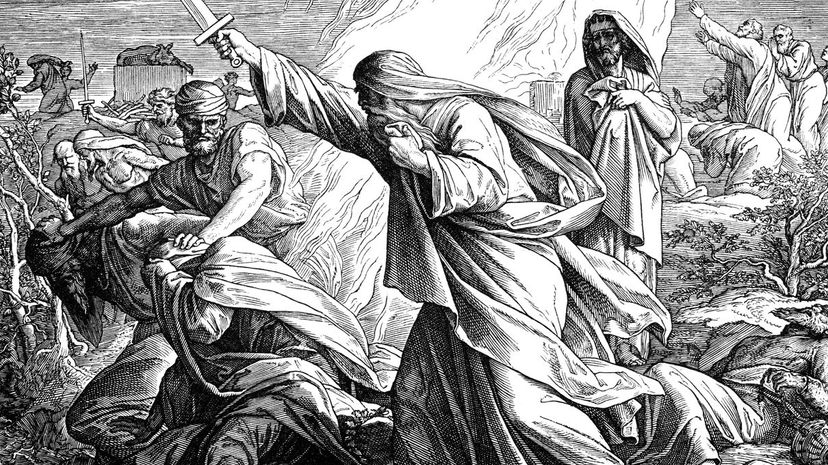
In 1 Kings 18, the victorious prophet's request of Ahab was to "gather to me all Israel unto mount Carmel, and the prophets of Baal four hundred and fifty, and the prophets of the groves four hundred ..." Baal's prophets called upon their god with no reply, but God answered Elijah's call "by fire."
Advertisement
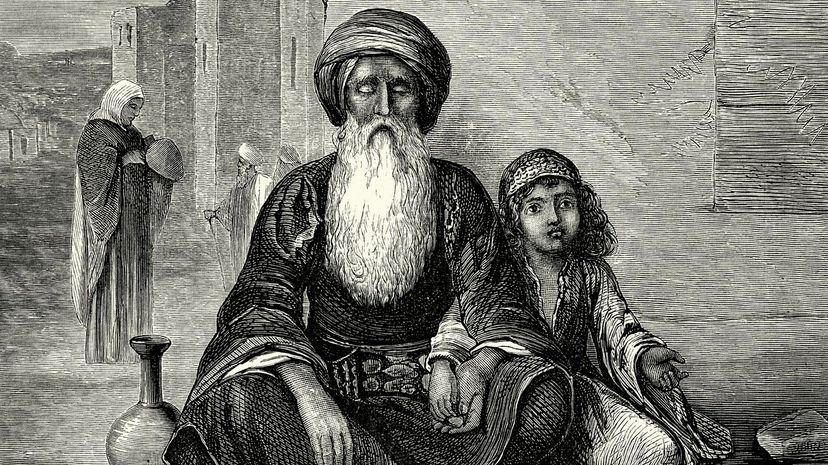
According to Mark 10, blind Bartimaeus cried out to Jesus as he "sat by the highway side begging." He wailed twice, the second time louder than the first, "thou Son of David, have mercy on me."

John 11:35, "Jesus wept" is the shortest verse in the Bible. It explains how Jesus expressed his sorrow after learning that Lazarus had died after being sick. Jesus had hesitated going to heal him so that the "Son of God might be glorified" through the deceased man's resurrection.
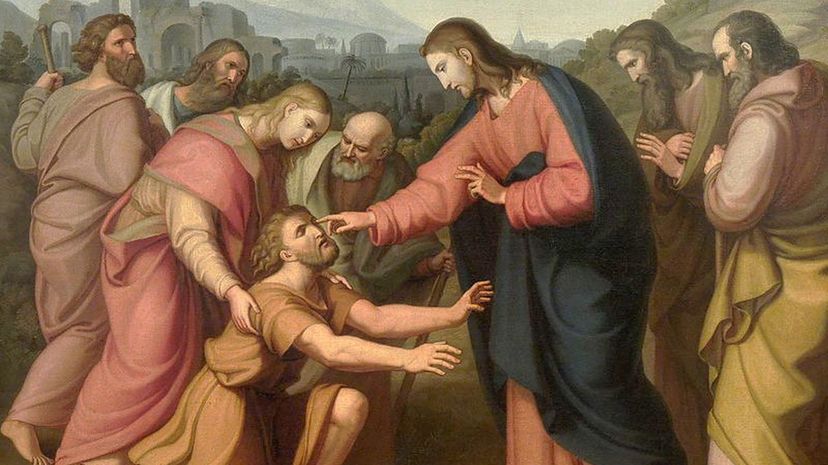
John 9 states that the man "was blind from his birth." Jesus had escaped the Jews who sought to stone him when he came across the blind man. Jesus "spat on the ground, and made clay of spittle" before anointing the man's eyes with it, restoring his sight.
Advertisement
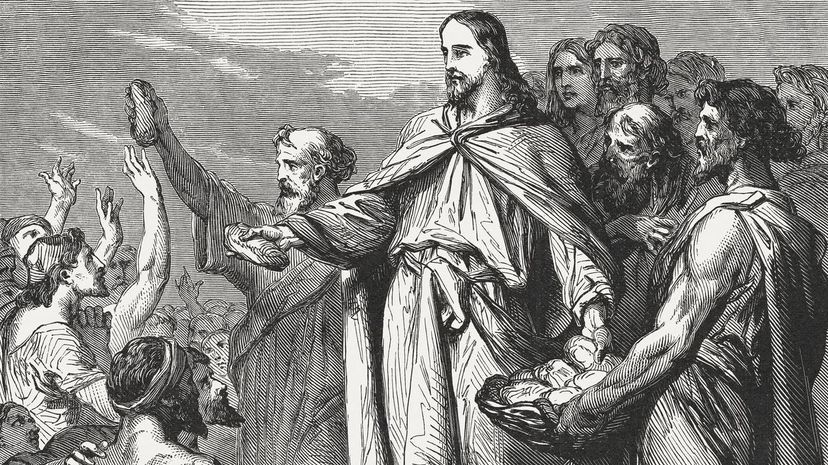
Jesus's disciples mention the "few little fishes" in Matthew 15. A large multitude of 4,000 people had joined Jesus and his disciples for a three-day fast. Jesus did not want to send the hungry people off, so he inquired of his disciples the amount of available food before they did all eat.
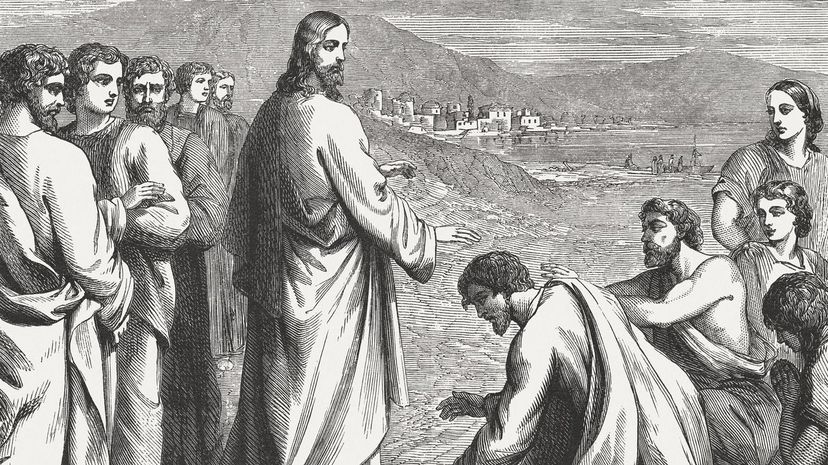
Mark 7 offers what Jesus said exactly: "... Ephphatha, that is, Be opened." Jesus met the deaf-mute in the region of Decapolis. The man's "ears were opened, and the string of his tongue was loosed, and he spake plain."
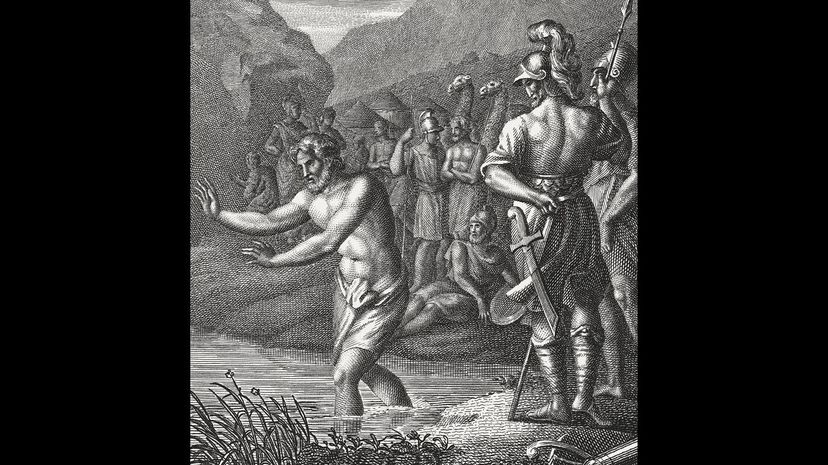
Second Kings 5 explains that, "Naaman was wroth," when Prophet Elisha sent a servant to advise the man of valor to wash in the Jordan to heal his leprosy. Only after Naaman humbled himself and did as the prophet had instructed was he cleansed of his affliction.
Advertisement

As Elijah and Elisha conversed, according to 2 Kings 2, "There appeared a chariot of fire, and horses of fire ... and Elijah went up by a whirlwind into heaven." Before Elijah's ascension, the two prophets spoke of Elisha taking his place and receiving a double portion of Elijah's spirit.
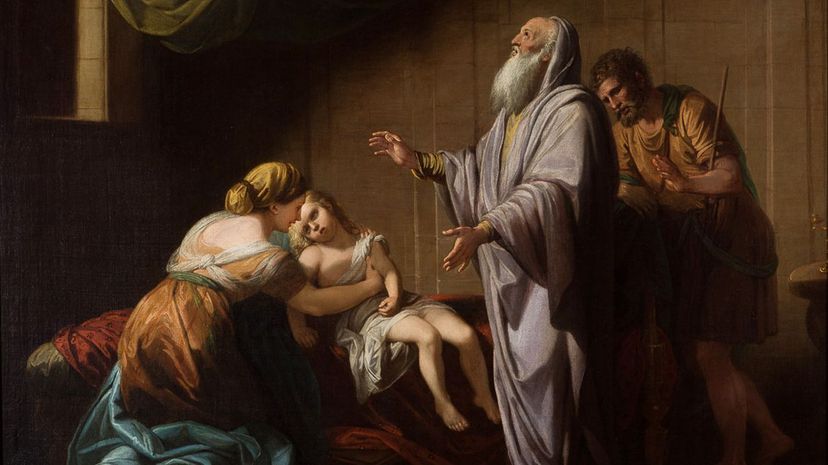
Second Kings 4 insists that Prophet Elisha "stretched himself upon him: and the child sneezed seven times, and the child opened his eyes." Previously, Elisha had prophesied the child's birth to the gracious Shunammite woman, the child's mother.

Saul, a Jew, had been renowned for harshly persecuting early Christians. As the religious scholar journeyed, "suddenly there shined round about him a light from heaven ..." Jesus's voice miraculously instructed Saul, who was converted to Paul, in the way he should go.
Advertisement

Numbers 20 informs how Moses "smote the rock twice," but God had instructed Moses to "speak ye unto the rock" so that it might "give forth his water" for the thirsty children of Israel and their beasts. God punished Moses by not allowing him to enter the promised land.